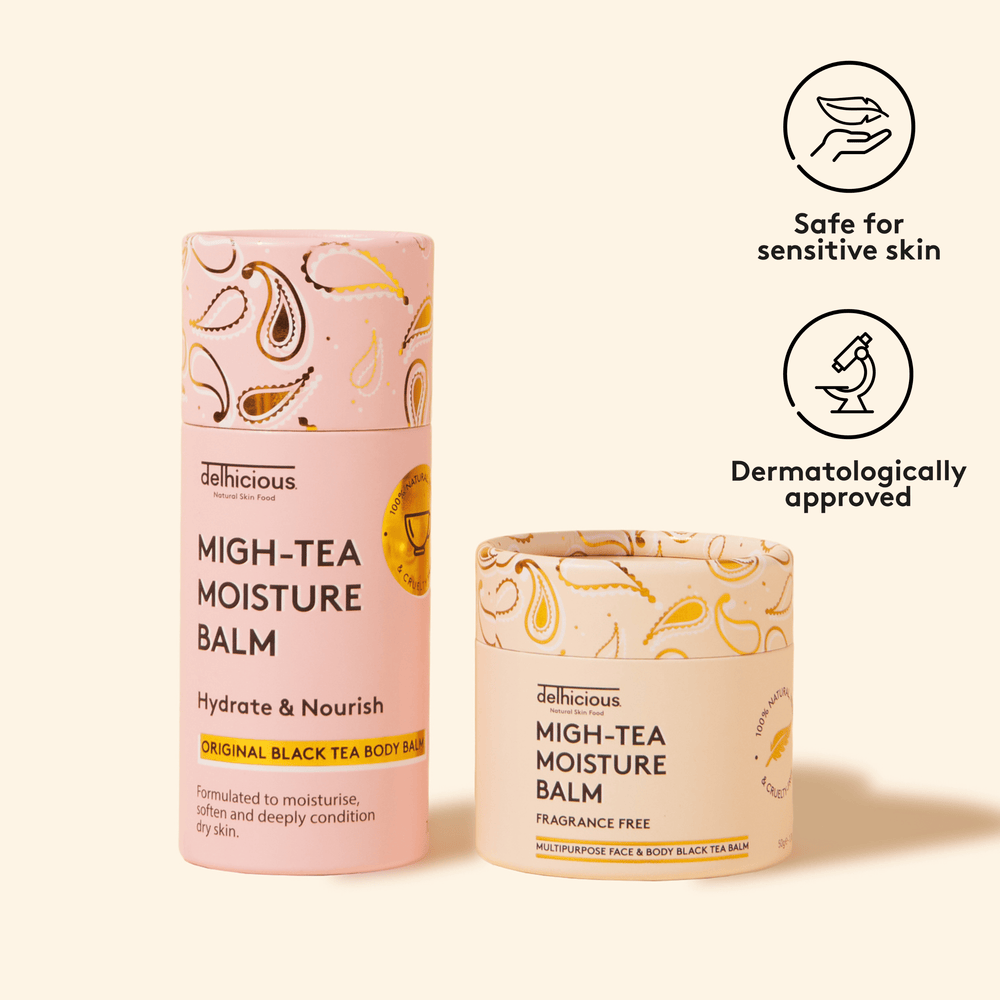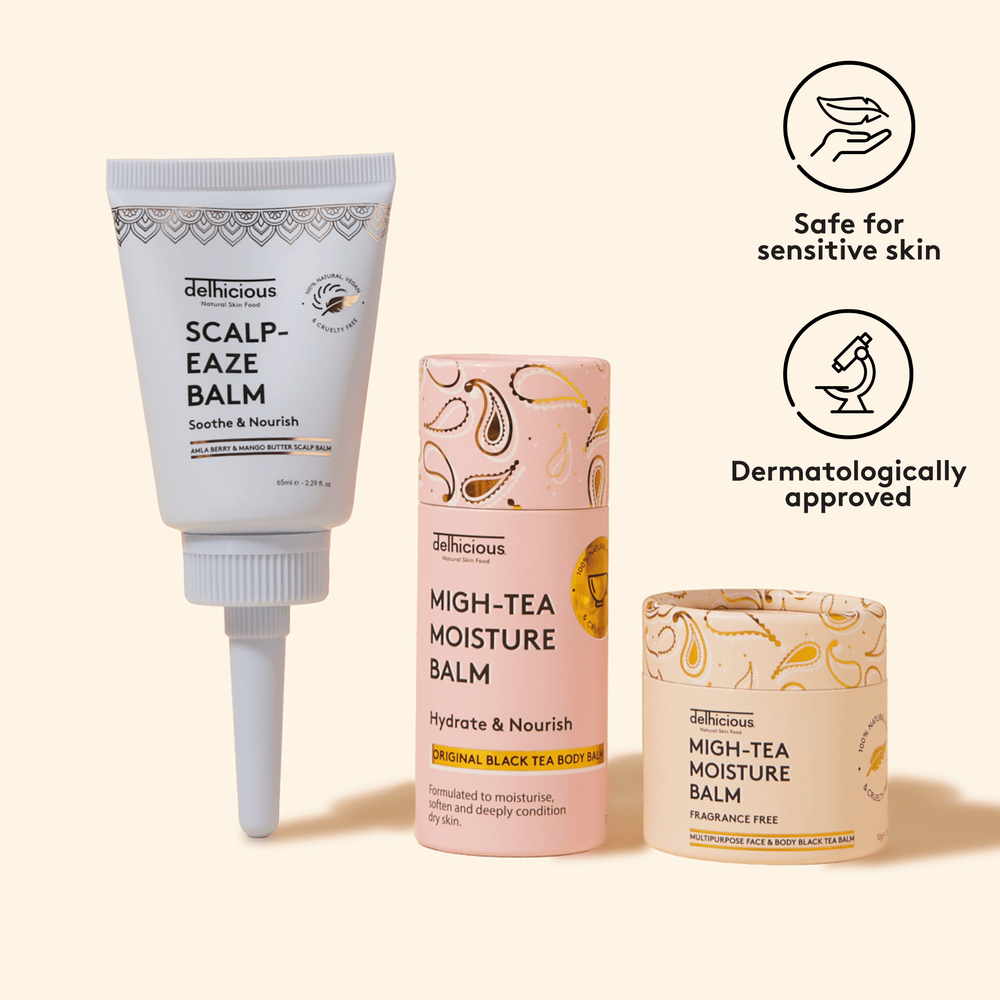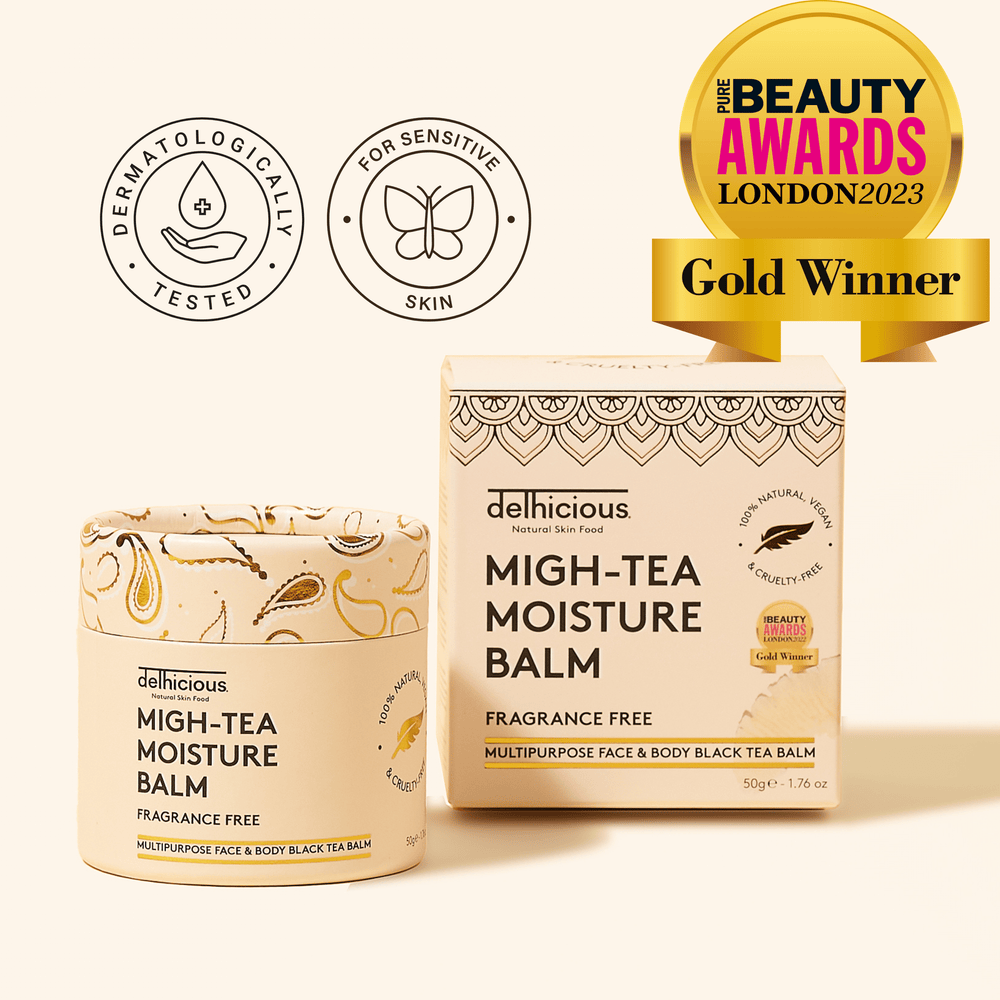
Eczema, also known as atopic dermatitis, is a common skin condition that affects many babies in their first few months of life. This itchy, inflamed skin can cause discomfort and concern for parents. While eczema is not harmful in the long term, it can be distressing for both babies and their families. Thankfully, there are several natural ways to help manage and minimise eczema flare-ups in babies. Here’s what you need to know.
What Is Eczema in Babies?
Eczema in babies typically appears as red, dry, and itchy patches of skin, often on the face, scalp, arms, and legs. It can occur at any age, but most babies begin to show signs of eczema before the age of 6 months. The exact cause of eczema is not fully understood, but it’s believed to be a combination of genetic and environmental factors. Babies with eczema tend to have a compromised skin barrier, which makes them more vulnerable to irritants, allergens, and bacteria.
How do I know it's eczema?
- Redness and swelling of the skin
- Small bumps that open and weep when scratched
- Skin that looks wet if it's very irritated or infected
- Scratch marks and bleeding
- Severe itching that can cause disturbed sleep and irritability Skin that may become very rough, leathery and darker in colour if scratched for many weeks to months
Common Triggers of Eczema in Babies
Eczema flare-ups can be triggered by several factors, including:
- Dry air or cold weather: Dry skin is more prone to irritation.
- Harsh soaps and detergents: These can strip the skin of its natural oils.
- Allergens: Dust mites, pet dander, and pollen can irritate the skin.
- Certain fabrics: Wool and synthetic fibers can cause itching and irritation.
- Food allergies: In some cases, food triggers like dairy, eggs, or peanuts can exacerbate eczema.
Natural Ways to Minimise Eczema in Babies
While eczema may not completely go away, there are natural and gentle ways to help soothe and minimise symptoms for your baby. Here are some effective remedies you can try:
1. Moisturise Regularly with Natural Oils
One of the best ways to manage eczema is to keep your baby's skin well-moisturised. Natural oils such as coconut oil, olive oil, and almond oil are excellent options for soothing dry skin and providing relief from itching. Coconut oil, in particular, has anti-inflammatory and antimicrobial properties, making it a great choice for eczema-prone skin. Apply the oil after bathing to lock in moisture and keep the skin hydrated. The Delhicious Fragrance Free Migh-Tea Moisture Balm is a great natural, yet hydrating option to go for and it contains almond oil.

2. Oatmeal Baths
Oatmeal is known for its soothing properties and can help alleviate itching and irritation associated with eczema. You can use colloidal oatmeal (finely ground oatmeal) in your baby's bathwater. Simply add a handful of the oatmeal to a lukewarm bath and let your baby soak for 10-15 minutes. The oatmeal will create a protective barrier on the skin and provide relief from inflammation and dryness.
3. Use Gentle, Fragrance-Free Skin Products
When caring for a baby with eczema, it’s essential to choose skin care products that are gentle and free from harsh chemicals. Look for fragrance-free, hypoallergenic, and natural products, such as calendula creams or neem-based oils, which are known for their anti-inflammatory and skin-healing properties. Avoid soaps with added fragrances or artificial colors, as they can irritate sensitive skin.
4. Maintain a Comfortable Temperature and Humidity
Extreme temperatures, whether hot or cold, can trigger eczema flare-ups. Keep your baby’s environment at a comfortable temperature, and consider using a humidifier to prevent dry air, especially in the winter months. Dry air can strip your baby's skin of moisture, making eczema worse. A humidifier can help maintain the skin’s hydration and soothe irritation.
5. Dress Your Baby in Soft, Breathable Fabrics
The fabric your baby wears can have a significant impact on eczema. Opt for soft, natural fabrics like cotton, which allow the skin to breathe and reduce the likelihood of irritation. Avoid wool, synthetic fabrics, and tight-fitting clothing, as these can exacerbate eczema symptoms. Always dress your baby in loose, comfortable clothing to prevent friction and overheating.
6. Breastfeeding and Diet
Breastfeeding is beneficial for babies with eczema, as breast milk contains antibodies that support the immune system and help reduce inflammation. If you're breastfeeding, try to maintain a healthy diet and consider eliminating common food allergens (like dairy, eggs, or nuts) to see if that improves your baby's eczema. If your baby is formula-fed, talk to your pediatrician about trying hypoallergenic formulas that may be gentler on your baby’s skin.
7. Keep Nails Short and Clean
Babies tend to scratch when they feel itchy, which can lead to further skin irritation or infection. Keep your baby's nails trimmed and smooth to reduce the risk of scratching. You can also consider using scratch mittens to prevent your baby from scratching while sleeping.
Eczema in babies can be challenging, but with proper care and the right natural remedies, it is possible to minimise symptoms and provide relief for your little one. By keeping your baby’s skin hydrated, using gentle skincare products, and avoiding common triggers, you can help soothe eczema flare-ups and promote healthier skin. Always remember to consult with your healthcare provider before trying new treatments, especially if your baby’s condition is severe or persistent.
With patience and the right approach, you can help your baby feel more comfortable and enjoy the skin-soothing benefits of natural remedies.
Feel free to ask us any further question on our socials Instagram or TikTok




